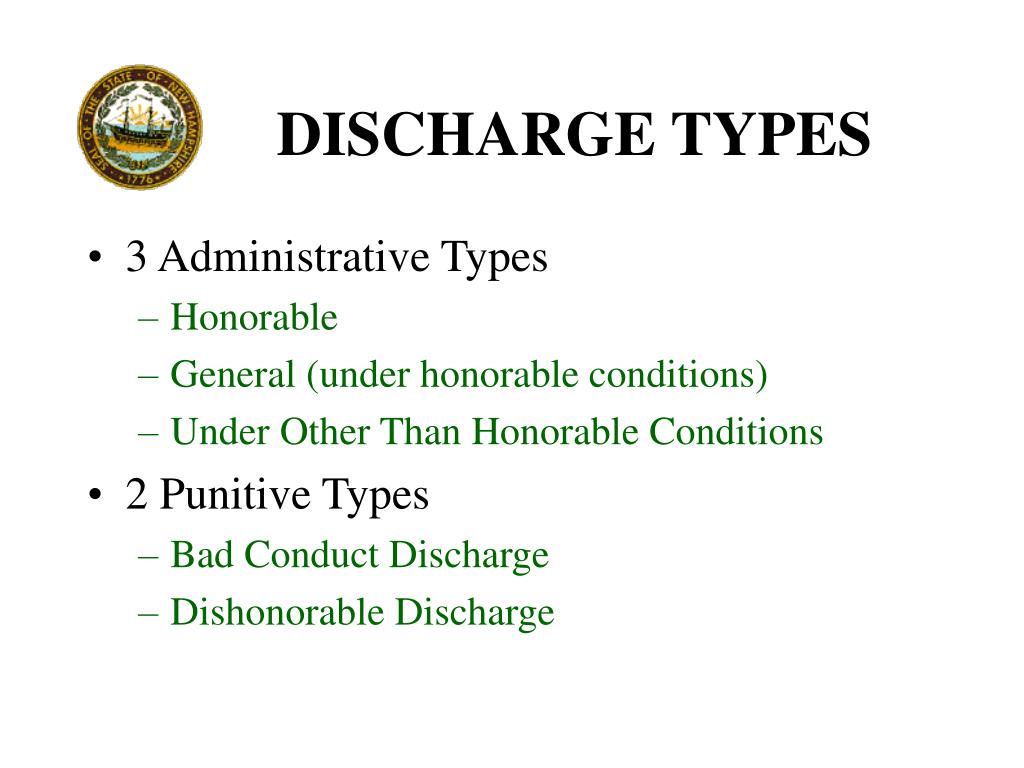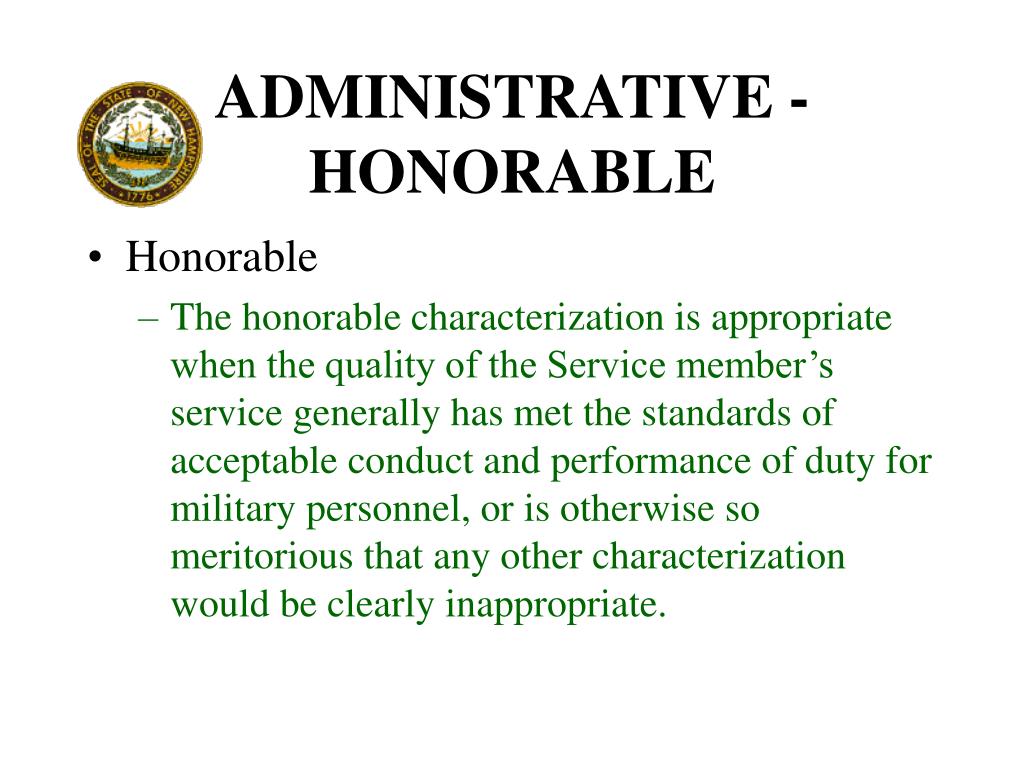Dishonorable Vs Bad Conduct Discharge - Bad conduct discharges (bcd) and dishonorable discharges are considered punitive discharges, which means they are a legal punishment. A dishonorable discharge is considered the most severe of the. Honorable discharge demonstrates that you did not leave due to any crimes or bad conduct and have either completed your service or have a legitimate reason for not completing it. This may include medical retirement for issues. A bad conduct discharge (bcd) is one of the forms of a punitive discharge, meaning that it must go through the military justice system to happen. This type of discharge is for a military member who exhibits bad conduct in some. In the armed forces, there are two types of punitive discharges: A bad conduct discharge (bcd) and a dishonorable discharge.
A bad conduct discharge (bcd) is one of the forms of a punitive discharge, meaning that it must go through the military justice system to happen. This may include medical retirement for issues. A bad conduct discharge (bcd) and a dishonorable discharge. A dishonorable discharge is considered the most severe of the. In the armed forces, there are two types of punitive discharges: Honorable discharge demonstrates that you did not leave due to any crimes or bad conduct and have either completed your service or have a legitimate reason for not completing it. This type of discharge is for a military member who exhibits bad conduct in some. Bad conduct discharges (bcd) and dishonorable discharges are considered punitive discharges, which means they are a legal punishment.
A dishonorable discharge is considered the most severe of the. In the armed forces, there are two types of punitive discharges: This type of discharge is for a military member who exhibits bad conduct in some. A bad conduct discharge (bcd) is one of the forms of a punitive discharge, meaning that it must go through the military justice system to happen. This may include medical retirement for issues. Honorable discharge demonstrates that you did not leave due to any crimes or bad conduct and have either completed your service or have a legitimate reason for not completing it. Bad conduct discharges (bcd) and dishonorable discharges are considered punitive discharges, which means they are a legal punishment. A bad conduct discharge (bcd) and a dishonorable discharge.
How a Dishonorable Discharge Can Ruin Your Life YouTube
Honorable discharge demonstrates that you did not leave due to any crimes or bad conduct and have either completed your service or have a legitimate reason for not completing it. This may include medical retirement for issues. A bad conduct discharge (bcd) and a dishonorable discharge. Bad conduct discharges (bcd) and dishonorable discharges are considered punitive discharges, which means they.
PPT NEW HAMPSHIRE OFFICE OF VETERANS SERVICES PowerPoint Presentation
A bad conduct discharge (bcd) is one of the forms of a punitive discharge, meaning that it must go through the military justice system to happen. A dishonorable discharge is considered the most severe of the. This may include medical retirement for issues. This type of discharge is for a military member who exhibits bad conduct in some. Bad conduct.
How a Dishonorable Discharge affects servicemembers and their families
A bad conduct discharge (bcd) and a dishonorable discharge. This type of discharge is for a military member who exhibits bad conduct in some. In the armed forces, there are two types of punitive discharges: This may include medical retirement for issues. A bad conduct discharge (bcd) is one of the forms of a punitive discharge, meaning that it must.
Dismissal & Dishonorable Discharge YouTube
In the armed forces, there are two types of punitive discharges: This type of discharge is for a military member who exhibits bad conduct in some. Bad conduct discharges (bcd) and dishonorable discharges are considered punitive discharges, which means they are a legal punishment. A dishonorable discharge is considered the most severe of the. A bad conduct discharge (bcd) is.
Is bad conduct discharge worse than dishonorable? YouTube
Honorable discharge demonstrates that you did not leave due to any crimes or bad conduct and have either completed your service or have a legitimate reason for not completing it. In the armed forces, there are two types of punitive discharges: A bad conduct discharge (bcd) and a dishonorable discharge. A bad conduct discharge (bcd) is one of the forms.
PPT NEW HAMPSHIRE OFFICE OF VETERANS SERVICES PowerPoint Presentation
A dishonorable discharge is considered the most severe of the. Bad conduct discharges (bcd) and dishonorable discharges are considered punitive discharges, which means they are a legal punishment. This may include medical retirement for issues. Honorable discharge demonstrates that you did not leave due to any crimes or bad conduct and have either completed your service or have a legitimate.
Changing a Dishonorable Discharge Davidson Elder Law
This type of discharge is for a military member who exhibits bad conduct in some. In the armed forces, there are two types of punitive discharges: A bad conduct discharge (bcd) and a dishonorable discharge. This may include medical retirement for issues. A bad conduct discharge (bcd) is one of the forms of a punitive discharge, meaning that it must.
Dishonorable Discharge Reasons, Consequences & Examples Lesson
This type of discharge is for a military member who exhibits bad conduct in some. Honorable discharge demonstrates that you did not leave due to any crimes or bad conduct and have either completed your service or have a legitimate reason for not completing it. In the armed forces, there are two types of punitive discharges: A dishonorable discharge is.
Understanding Dishonorable Discharge from the Military
In the armed forces, there are two types of punitive discharges: Bad conduct discharges (bcd) and dishonorable discharges are considered punitive discharges, which means they are a legal punishment. A bad conduct discharge (bcd) and a dishonorable discharge. This type of discharge is for a military member who exhibits bad conduct in some. This may include medical retirement for issues.
Understanding General, Bad Conduct, and Dishonorable Discharges A
Bad conduct discharges (bcd) and dishonorable discharges are considered punitive discharges, which means they are a legal punishment. Honorable discharge demonstrates that you did not leave due to any crimes or bad conduct and have either completed your service or have a legitimate reason for not completing it. In the armed forces, there are two types of punitive discharges: This.
A Bad Conduct Discharge (Bcd) And A Dishonorable Discharge.
A dishonorable discharge is considered the most severe of the. Bad conduct discharges (bcd) and dishonorable discharges are considered punitive discharges, which means they are a legal punishment. A bad conduct discharge (bcd) is one of the forms of a punitive discharge, meaning that it must go through the military justice system to happen. This may include medical retirement for issues.
This Type Of Discharge Is For A Military Member Who Exhibits Bad Conduct In Some.
In the armed forces, there are two types of punitive discharges: Honorable discharge demonstrates that you did not leave due to any crimes or bad conduct and have either completed your service or have a legitimate reason for not completing it.









